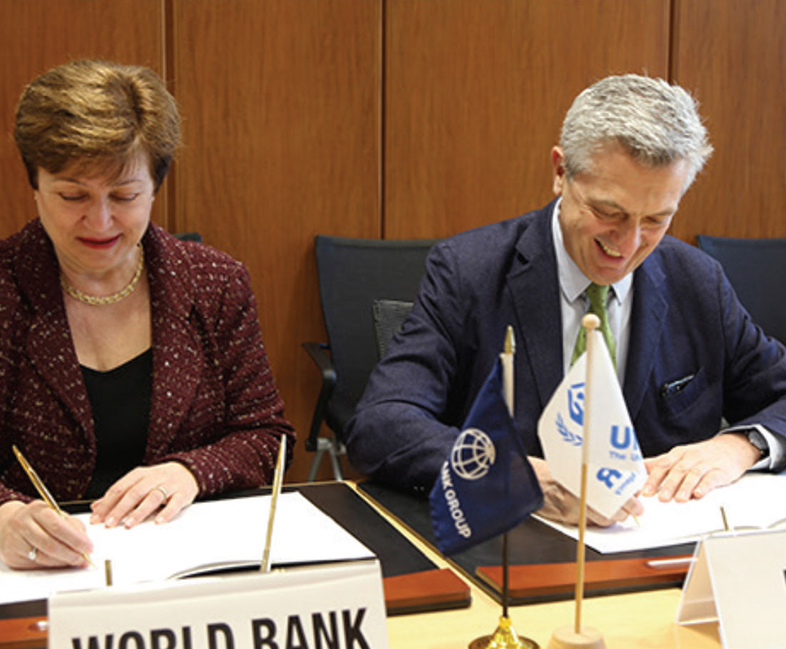- Home
- About
- Experts
- Publications
- Our Centers
- Policy Forums
- Speeches
- Events
- Multimedia
- Mon-Fri (9:00 am-7.00 pm)
- [email apolicyinstitute@gmail.com]
- +254 706 670 965
- Mon-Fri (9:00 am-7.00 pm)
- [email apolicyinstitute@gmail.com]
- +254 706 670 965

the World Bank and the United Nations Refugee Agency (UNHCR) launched the Joint Data Center on Forced Displacement to enhance the ability of stakeholders to make timely and evidence-driven responses to forced displacement. Scientific information is needed to support projects and knowledge-based interventions to improve the lives of refugees, asylum-seekers, Internally displaced persons, returnees, stateless people and host communities in the Horn of Africa region.
“In God we trust. All others must bring data”, quipped the Statistician, William Edwards Deming. Rightly extolled as the new oil of the digital economy in the 21st century, data underpins a new development-oriented response to displacement. Reliable data is central to the success of the new shift to the development-humanitarian paradigm and the unique and complex partnerships it is spawning. A new Joint Data Center on Forced Displacement by the World Bank and the United Nations Refugee Agency (UNHCR) exemplifies the emerging unique partnerships between development and humanitarian actors to use data to stem the spiraling global displacement crisis.
In 2019, the number of refugees, asylum-seekers and internally-displaced people (IDPs) hit the 70.8 million mark, the highest level since the creation of the United Nations High Commissioner for Refugees (UNHCR) after the Second World War. Nearly 90% of the displaced are living in the developing world, many trapped in protracted displacement situations.